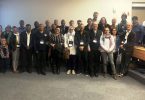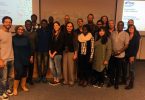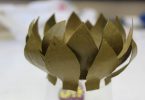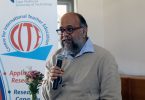CPUT has recently welcomed Dr Sjirk Geerts, a lecturer in Conservation and Marine Sciences, to its family of over 30 rated researchers.
Several South African universities use the outcomes of the National Research Foundation evaluation and rating process to position themselves as research-intensive institutions, while others provide incentives for their staff members to acquire and maintain a rating and give special recognition to top-rated researchers.
Geerts recently became a Y1-rated researcher and he spoke to CPUT Bulletin about this achievement.
What is your area of research?
My research focus for many years has been human impacts on bird pollinated systems. Human impacts included increased fire frequencies, alien invasive plants species and habitat fragmentation.
I am fascinated by the complex interactions among ecosystem entities. Human impacts on ecosystems call for a better understanding of the resilience of ecosystem functions in the face of rapid environmental changes. The study of spatial interactions between plants and animals, particularly pollination, is therefore important.
One of the main impacts on ecosystems in Cape Fynbos are alien-invasive plant species. Other than trying to understand the ecological processes enabling alien species to invade, I am also focused on the best management of emerging alien-invasive plant species.
Why the interest in this area?
My love and enthusiasm for the natural world developed in my childhood and culminated in my PhD in Ecology.
What does this NRF rating mean to you professionally?
This is a first rating. I aimed for the Y1-rating and got it, now I have six years to build an international footprint by publishing in high impact international journals. The social impact of my work is also important and the Iingcungcu Sunbird Restoration Project in collaboration with Stellenbosch University, SA National Biodiversity Institute and the City of Cape Town (http://academic.sun.ac.za/botzoo/iingcungcu/index.htm) needs more funding.
What does this improved NRF rating mean to you personally?
I am excited about the recognition and the rating will, hopefully, result in continued research funding. I would like to thank Stellenbosch University’s Prof Anton Pauw, who was my PhD supervisor, for the bulk of the work in my research was done with him. I am also grateful to Prof Joseph Kioko, his former head of department at CPUT for his support.







